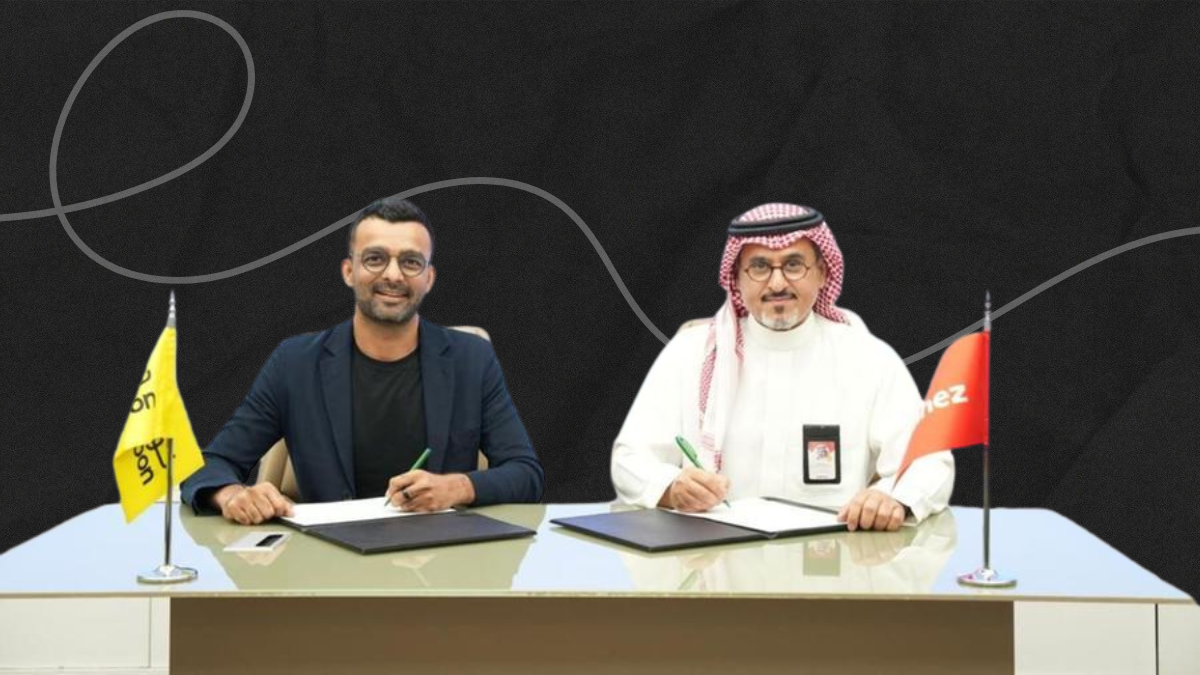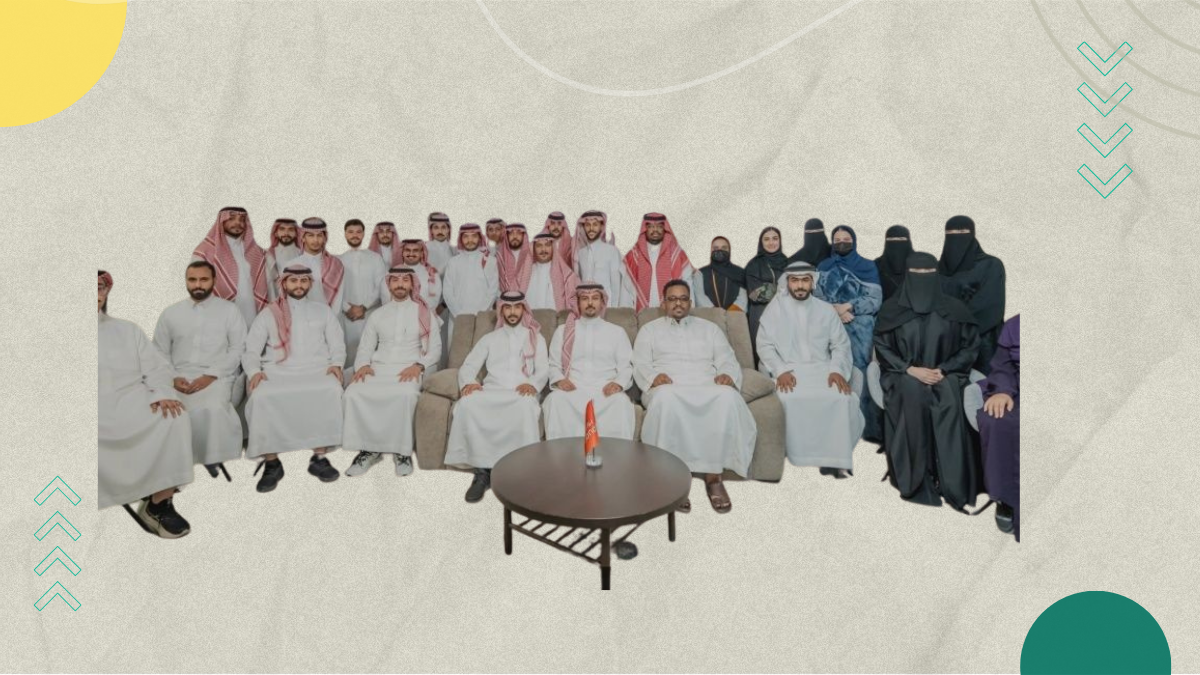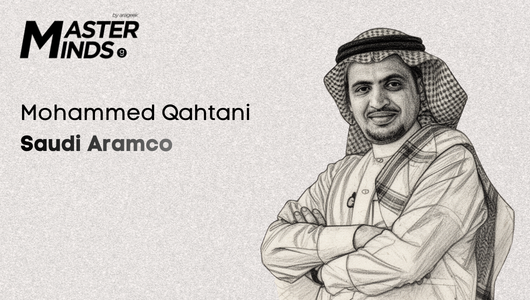I am Mohammed Gawish. I built for the Middle East, then went global

10 min
Muhammad Gawish on building iSchool: why coding still matters, and how scale follows structure
There’s a fashionable claim that children no longer need to learn programming because AI will do it for them. Mohammed Gawish has built a company on the opposite belief. In his view, AI does not erase the need for coders, it raises the bar for what “technical literacy” should mean. If you want the next generation to shape technology rather than consume it, you start early, you teach properly, and you give them a path that compounds.
That conviction sits underneath iSchool, the platform Gawish co-founded to teach programming, AI, and digital skills to learners aged 6 to 18. It also explains why iSchool’s model is unusually long-term for an online education business: a structured progression that can stretch across six years, designed to take a child from first principles to advanced capability, instead of a quick certificate and a polite goodbye.
How an engineering background turned into a teaching obsession
When asked about what came before iSchool, Gawish frames it as education first, business second. He studied Electronics Engineering at Cairo University, but his real entry into the space started in 2014, when he began teaching programming and robotics. That early period mattered because it forced him to confront a simple operational truth: young learners can move fast, but only if the material is shaped for them, paced for them, and delivered consistently.
In 2017, a scholarship from the U.S. Embassy in Cairo took him to Indiana University to study entrepreneurship and project management. He does not present it as a life-changing epiphany, more as a sharpening of tools, how to build systems around a mission rather than relying on charisma or improvisation.
By 2018, he joined Fujisoft in Japan, working on robotics competitions for children and adults, then travelled to China for the same purpose. The international exposure did not just broaden his network, it clarified the benchmark. He had seen what engagement looks like when it is engineered, not hoped for.
The gap he could not unsee
When the conversation turns to the moment iSchool became inevitable, he points to children’s attention as the signal. In robotics competitions, he watched kids lock in. Not in the dutiful, schoolish way, but in the way people focus when they are building something that responds. It made the gap in the Middle East feel less like a market opportunity and more like a missed responsibility: demand was there, but the infrastructure to develop it properly was thin.
So he and his partners, Mostafa Abdel-Moneim and Ibrahim Youssef, decided to build what they could not find. The idea formed in 2018, and the platform launched online in 2019. The sequencing is telling: observe the problem in the real world, design a model, then scale through delivery.
What iSchool actually teaches, and why the pathway matters
Pressed on what iSchool does differently, Gawish keeps coming back to structure. The platform teaches learners aged 6 to 18 across programming, game development, robotics, graphic design, artificial intelligence, and related digital skills. That list is broad, but his emphasis is not breadth for its own sake. It is about designing a progression that does not strand a student after the first burst of enthusiasm.
iSchool’s learning path can extend up to six years, moving students from beginner to advanced levels in a deliberate sequence. He contrasts this with short-term plans that give a taste of coding but fail to produce capability. The point, in his telling, is to make learning cumulative, so a child completes a level, then earns the right to tackle the next.
He also puts weight on teaching quality and curriculum standards. Courses are delivered by what he calls world-class instructors, and the curricula are internationally accredited by STEM. For parents, that reads as reassurance. For the business, it is a quality control mechanism that supports scale without diluting outcomes.
Growth that accelerated during COVID, then held
When asked how traction arrived, he credits both timing and readiness. The pandemic pulled education online, and iSchool was already positioned as a digital-first platform with a clear programme structure. Demand surged, and the company’s footprint widened beyond Egypt into the Arab world, Europe, and the United States.
What matters here is not the pandemic bump itself, but what it revealed: many families were not looking for entertainment dressed up as education. They wanted a serious, guided pathway, and they were willing to commit if the offer looked credible.
Funding, Ireland, and the difference between capital and momentum
On the question of investment, Gawish draws a line between organic growth and acceleration. iSchool initially grew without external funding. Later, the company raised a total of $6 million, with capital used as a lever rather than a lifeline.
The first investment was $160,000 from EdVentures in 2021. A further round followed in 2022. The biggest raise came in December 2023: $4.5 million led by Venture Wave Capital from Ireland, with participation from Oraseya Capital in Dubai.
Ireland enters the story through performance rather than pitch decks. In 2023, Gawish participated in a competition attended by Irish investors who, in his account, responded to iSchool’s global potential. The result was investment and a strategic base in Ireland to support international operations. It is a useful reminder that “global” often starts with being legible to someone outside your home market.
Why he thinks coding is not dying, and why AI makes it urgent
Asked directly about the claim that AI makes programming unnecessary, he does not soften the response. He strongly disagrees. The argument is not sentimental, it is practical: someone still needs to understand how systems work, how to instruct them, how to validate them, and how to build responsibly with AI rather than merely consuming outputs.
He acknowledges the recurring cycle of predictions that “coding is dead” and treats it as noise. Demand, he says, keeps rising. At iSchool, the goal is not only to teach children how to code, but how to use AI and build with it. In other words, the curriculum is not meant to defend the past, it is meant to prepare students for the actual tools they will inherit.
Competition, and the decision to anchor on quality
When the conversation turns to competitors, Gawish describes the landscape with a calm sort of specificity. In Ireland, he does not see strong local EdTech players in the same field. The more serious competition, in his view, comes from Asia, particularly India, where many companies aim at the US market.
Rather than obsessing over rivals, he talks about learning from the best teaching models worldwide while keeping the product grounded in outcomes. It is a mature stance for an education business: you can borrow what works pedagogically, but you cannot outsource responsibility for student progress.
Milestones that signal credibility, not just growth
Asked to account for iSchool’s progress, he points first to reach, then to recognition. The platform has served more than 131,000 students across multiple regions. But he also lists external validations that matter in education, where trust is hard-won.
In 2022, iSchool was selected for the Plug and Play Middle East programme, supported by the Egyptian Ministry of Communications and ITIDA, and Gawish visited the Plug and Play centre in Silicon Valley. He was named Founder of the Year for North Africa at the Global Startups Awards 2021 in South Africa. In 2023, iSchool received the World Summit Awards recognition from the United Nations, tied to impact on the Sustainable Development Goals, specifically quality education.
He also notes a more personal metric of success: some students have started earning income through freelance work. It is not presented as a marketing hook, but as evidence that the skills transfer into the real world.
The team factor, and the refusal to romanticise solo founders
Pressed on what drives iSchool’s success, Gawish refuses the lone-hero narrative. He describes the platform as the product of sustained effort by an entire team, with success rooted in the daily work of improving the educational experience for students across the Arab region.
It is an unglamorous answer, which is precisely why it feels true. Education platforms do not win because of one good idea. They win by delivering consistently, resolving issues quickly, and making the learning experience better week after week.
Expansion plans: Gulf markets, institutions, and government partnerships
When asked what comes next, Gawish talks less about geography and more about distribution. The next phase includes expansion into six Gulf countries: Saudi Arabia, the UAE, Oman, Bahrain, Qatar, and Kuwait. He believes the opportunity is significant, partly because few specialised programming education providers have entered these markets in a serious way.
The growth strategy also widens beyond direct-to-consumer. iSchool plans to expand through B2B and B2G models, partnering with schools, educational institutions, and government agencies, while continuing to enrol learners globally. He highlights a continuing partnership with Egypt’s Ministry of Communications through a free initiative to teach programming to students, positioning this as part of the country’s Vision 2030 ambition to reach one million programmers.
The ambition is clear: become the default platform for teaching children programming in the region, not by declaring it, but by embedding into institutions that can scale access.
Saudi Arabia, and the idea of joining a national movement
Asked about the Kingdom specifically, his language shifts into historical framing. He sees Saudi Arabia’s focus on AI education as a major national project, and he wants iSchool to contribute to it, not merely expand into it. The core claim stays consistent: with the right tools, kids do not just use technology, they innovate with it.
The interesting subtext is confidence earned through repetition. He is not selling a theory. He is describing what he believes he has already seen in students who move from curiosity to capability.
A content engine built on explanation, not performance
When the conversation turns to his public presence, Gawish frames it as an extension of his teaching instinct. He says he has always been drawn to simplifying complex ideas. In 2023, he began sharing content on social media focused on management and entrepreneurship advice. The scale is substantial: over 3 million followers and more than 2 billion views across platforms, alongside recognition as Young Media Influencer of the Year at the Kazan Global Youth Summit.
What stands out is that he does not present content as a separate career. He treats it as distribution for ideas, a way to teach at scale, and a channel that can compound trust if the material remains useful.
Advice to entrepreneurs: cash flow, customers, and hiring without sentimentality
Asked to give advice to entrepreneurs, Gawish stays operational. The first priority is continuity without cash flow issues. The second is customer service and how people are treated. The third is team selection, which he approaches with unusual bluntness: do not hire based on personal relationships or referrals alone. Evaluate through experience, and only then decide.
It is the same worldview that shows up throughout his story: outcomes over optics, systems over improvisation, and a belief that the future is shaped by the people you train early enough to build it.
 LEAP26
LEAP26 AI
AI Saudi Arabia
Saudi Arabia UAE
UAE Egypt
Egypt








